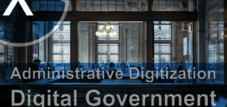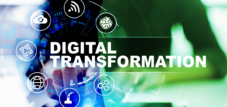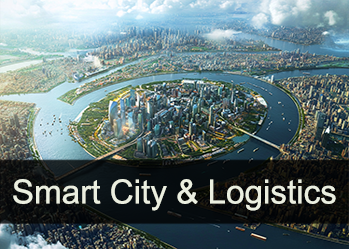Administrative optimization in the municipality: Administrative modernization in the municipality and cities compared to companies
Language selection 📢
Published on: June 26, 2024 / update from: June 26, 2024 - Author: Konrad Wolfenstein

Administrative optimization in the municipality: Administrative modernization in the municipality and cities compared to companies - Image: Xpert.Digital
🌆🌟 Administrative modernization: increasing innovation and efficiency
🌟 Administrative modernization is a significant process that aims to improve the efficiency and effectiveness of public services in order to provide citizens with a better and contemporary point of contact. If you look at this process in comparison to modernization in global companies, you will notice some differences, but also notable parallels. By learning from the experiences and best practices of commercial companies, cities and municipalities can significantly optimize their administrative processes.
✨ Differences between public administration and companies
First of all, it is important to recognize and understand the key differences between public administration and companies. These differences shape the approach to modernization in both sectors:
1. Goal setting and direction
- Public administrations are primarily aimed at providing services for the common good and citizens. This includes social security, infrastructure, education and more. They are not profit-oriented, but work with the aim of protecting public interests and improving the quality of life.
- Global companies, on the other hand, primarily pursue economic goals. They are profit-oriented and focused on maximizing their market share and profits. Their strategic decisions are often focused on competition, innovation and customer loyalty.
2. Regulation and bureaucracy
- Public administrations are subject to strict regulations, laws and bureaucratic processes. This is for transparency, accountability and to ensure fairness and equal treatment. This strict regulation can slow down modernization processes.
- Companies often have more flexibility and can react more quickly to market changes. They operate in a regulated but more dynamic environment that gives them more scope to innovate and adapt.
3. Stakeholders and decision-making processes
- Administrative decisions are often influenced by political committees and public participation. The consensus process can be lengthy as many stakeholders need to be taken into account.
- Companies have clearer decision-making structures, often in the form of a board of directors or management, that can make strategic decisions and implement them quickly.
🌟 What administration can learn from companies
Despite the differences, there are numerous areas where public administration can benefit from the practices of global companies. Here are some key aspects:
1. Efficiency and process optimization
- Companies rely on continuous process optimization and lean management to identify and eliminate inefficient processes. Methods such as the Kaizen principle, which strives for constant improvement, can also be applied in administration to streamline processes and make better use of resources.
- Administrative units could conduct regular process analysis using technologies such as Robotic Process Automation (RPA) to automate repetitive tasks and relieve employees.
2. Use of modern technologies
- Global companies are using cutting-edge technologies such as big data, artificial intelligence (AI) and the Internet of Things (IoT) to improve their services and products. These technologies can also provide valuable services in administration.
- For example, using AI-based software to process applications and forms could significantly shorten processing times and reduce errors. IoT can be used to monitor and control urban infrastructure, such as traffic control or waste disposal.
3. Customer centricity
- Companies focus heavily on the needs of their customers and adapt their offers accordingly. They invest in customer relationship management (CRM) and use data analytics to understand customer preferences and improve services.
- Administrations could similarly introduce efficient citizen relations management. Through regularly conducted citizen surveys and feedback loops, administrations could specifically adapt their services to the wishes and needs of residents. An example of this would be the introduction of citizen portals, which enable easier and centralized interaction with the administration.
4. Agility and flexibility
- Agile working methods, such as those widely used in software development and start-ups, can also be valuable in administration. These methods promote a faster and more flexible response to changes and challenges.
- Cities and municipalities could adopt agile project management methods such as Scrum or Kanban, especially when implementing IT projects or infrastructural modernizations. These methods allow projects to be implemented in smaller, manageable steps and continuously adapted.
5. Personnel development and cultural change
- Companies attach great importance to continuous training and the development of their employees. They create incentives for lifelong learning and promote a corporate culture that supports innovation and creativity.
- Public administration should also invest more in the further training of its employees. This could be done through targeted training in the areas of digitalization, project management and soft skills. A cultural change towards an innovation-friendly, flexible way of thinking could also be supported through team building measures and the promotion of independent working methods.
6. Sustainability and Corporate Social Responsibility (CSR)
- Sustainability and social responsibility are central issues for modern companies. They implement strategies to improve their environmental footprint and assume social responsibility.
- Cities and communities could adopt these concepts by placing greater emphasis on sustainable practices. Examples of this include the expansion of e-government offerings to reduce paper consumption or the introduction of energy management systems in public buildings to reduce energy consumption.
7. Public relations and branding
- Companies invest significantly in their public relations and branding to build a positive image and gain customer trust.
- Administrations could invest more resources in their communication strategy to become more transparent and closer to citizens. This could be done through regular town hall meetings, comprehensive information campaigns and the use of social media. Strong branding can strengthen citizens' trust and identification with their city or community.
8. Co-creation and citizen participation
- Companies are increasingly relying on co-creation, i.e. the joint development of products and services with their customers. This collaborative approach leads to more innovative and user-focused results.
- Administrations could involve citizens more in decision-making processes, for example through citizen forums, participatory budget planning or crowdsourcing projects. This not only increases the acceptance of decisions, but can also contribute valuable ideas and perspectives.
9. Best practices and benchmarking
- Companies use benchmarking to compare themselves with industry leaders and competitors and to identify best practices. This helps them identify weaknesses and continually improve.
- Administrations can also learn from each other through supra-regional collaboration and the exchange of best practices. Networks and platforms on which administrative units share their experiences can promote the dissemination of successful modernization approaches.
10. Financial management and profitability
- Companies pay attention to cost management and efficiency improvements to ensure profitability. They rely on budget control, profitability analyzes and strategic investments.
- Administrations could adopt similar financial practices to use public resources more efficiently. Better planning and control of public spending as well as investments in future-oriented projects can achieve a better long-term fiscal position.
🌍 Modernization of administration
Modernizing administration in cities and municipalities offers numerous opportunities to improve the efficiency and quality of public services. By learning from the experiences and approaches of global companies, municipalities can optimize their processes and better respond to the needs of their citizens. Although there are significant differences in the objectives and framework conditions, many of the principles applied are transferable and can make a significant contribution to the modernization of public administration. Ultimately, this not only serves to increase efficiency and reduce costs, but above all to improve the quality of life of all citizens.
📣 Similar topics
- 🏛️ Different goals: administration vs. company
- ⚙️ Increased efficiency through process optimization in administration
- 🤖 Use of modern technologies in public administration
- 💼 What administrations can learn from corporate management
- 📝 Citizen Relations Management: An Approach to Governance
- 📊 Agile methods in administrative modernization
- 🤝 Co-creation and citizen participation as the key to modernization
- 🌱 Sustainability and CSR in administration
- 🔍 Best practices and benchmarking in public administration
- 💰 Efficient financial management in cities and municipalities
#️⃣ Hashtags: #administrative modernization #increasing efficiency #use of technology #citizen participation #sustainability
🎯🎯🎯 Benefit from Xpert.Digital's extensive, fivefold expertise in a comprehensive service package | R&D, XR, PR & SEM

AI & XR 3D Rendering Machine: Fivefold expertise from Xpert.Digital in a comprehensive service package, R&D XR, PR & SEM - Image: Xpert.Digital
Xpert.Digital has in-depth knowledge of various industries. This allows us to develop tailor-made strategies that are tailored precisely to the requirements and challenges of your specific market segment. By continually analyzing market trends and following industry developments, we can act with foresight and offer innovative solutions. Through the combination of experience and knowledge, we generate added value and give our customers a decisive competitive advantage.
More about it here:
📌 Other suitable topics
🏢🏭 Different goals: administration vs. company
🌆 In modern society, both administration and companies are central institutions that ensure the functioning of public and private life. While both types of organizations aim to meet different interests and needs, they pursue different goals, employ different methodologies, and follow different guiding principles.
📋 Goals and tasks of the administration
Administration, be it local, state or federal, has the primary goal of securing the common good and offering public services. The central tasks of the administration include implementing laws and regulations, maintaining public safety and order, and ensuring a fair distribution of resources. These tasks are diverse and include areas such as education, health, infrastructure and social security.
One of the main tasks of the administration is to ensure the rule of law. This is a fundamental principle that ensures that all administrative actions are carried out on the basis of law. The rule of law protects citizens from arbitrariness and guarantees them rights and freedoms. In addition, the administration plays a crucial role in the implementation of political decisions and programs that are democratically legitimate.
⚖️ Efficiency vs. effectiveness
A key difference between administration and companies lies in the way they define and measure efficiency and effectiveness. Administrative organizations aim to provide services as effectively as possible. This means that the focus is on achieving the desired results, regardless of the resources used. The main goal is not always to minimize costs, but rather to ensure that services are provided reliably and fairly.
In contrast, companies often measure their success based on efficiency, i.e. the ratio of output to input. This is about maximizing profits by minimizing costs and optimizing production and administrative processes. A company is highly interested in strengthening its market position, satisfying customers and generating sustainable profits.
🧩 Decision making and flexibility
Another key difference is decision making and flexibility. Administrative processes are often characterized by strict regulations and bureaucratic procedures, which lead to a certain rigidity in decision-making processes. This is necessary to ensure transparency, equal treatment and the rule of law. However, this rigidity can also lead to slower reactions to changes or crises.
Companies, on the other hand, usually have a more flexible decision-making structure. You can react more quickly to market changes and implement innovative solutions. This flexibility allows companies to identify trends early and adapt to changing customer needs. While administration often relies on long-term, stable structures, companies must continually adapt and innovate in order to remain competitive.
💸 Financing and resource management
Financing represents another fundamental difference. Public administrative units are financed primarily through tax revenues and public funds. This financing is regulated by laws and public budgets, which provides a comparatively stable and predictable financial basis. The administration must ensure that it works effectively within these frameworks while maintaining transparency and accountability.
Companies, on the other hand, base their financing on private investments, equity capital and income from operating business. These sources of funding are often more volatile and can be affected by market fluctuations, investor confidence and economic conditions. Companies must therefore engage in proactive risk management and develop innovative financial strategies to ensure their long-term stability.
💡 Innovation and use of technology
There is often less scope for radical innovations in administration, as many processes are prescribed by legal requirements and administrative regulations. Nevertheless, digitalization has also led to significant improvements in public administration. E-government initiatives and the introduction of digital government services have increased the efficiency and accessibility of public services. These developments help reduce bureaucracy and provide citizens with easier access to administrative services.
Companies are generally more innovation-driven and continually invest in new technologies to increase their competitiveness. The development and implementation of new products, services and business models is central to entrepreneurial success. Disruptive technologies such as artificial intelligence, blockchain and the Internet of Things (IoT) have forced companies worldwide to realign their strategies and integrate innovative solutions to remain market leaders.
🌍 Values and culture
The cultural values and norms that shape administration and companies also differ significantly. Administrative organizations often follow ethical and moral principles based on justice, equality and public service. These values ensure that the administration acts in the best interests of the public and delivers results that serve the common good.
Companies, on the other hand, are more focused on entrepreneurial success criteria, such as competitive advantages, market shares and profit maximization. Corporate culture can vary greatly depending on the industry, company size and leadership. However, there is often a common drive for innovation, initiative and entrepreneurial thinking that characterizes everyday work.
🤝 Collaboration and networking
Both administration and companies benefit from collaboration and the formation of networks. In administration, interinstitutional cooperation is a key to solving complex social problems. This includes both horizontal cooperation between different administrative departments and vertical partnerships with regional and national institutions. Such collaborations enable a comprehensive and coordinated approach to achieving public welfare goals.
Companies use networks to create synergies and strengthen their market position. Strategic alliances, collaborations with research institutions and partnerships in the value chain are central elements for accelerating innovation processes and opening up new markets. By exchanging knowledge, technologies and resources, companies can act more flexibly and take advantage of competitive advantages.
🔮 Synergies and differences
Although administration and companies pursue different goals and approaches, their roles complement each other and together contribute to the functioning of society. The administration safeguards the common good, ensures stability and the rule of law and offers essential services. Companies drive economic progress, innovation and competitiveness. The combination of both systems creates a dynamic balance that meets both the needs of the population and the requirements of the economy.
Ideally, administration and companies can learn and benefit from each other. While administration can be strengthened through efficiency improvements, digitalization and citizen-oriented innovation processes, companies can learn from the structure, stability and ethical principles of public administration. Ultimately, the success of a society lies in promoting harmonious coexistence and cooperation between both institutions in order to improve the quality of life and be prepared for future challenges.
📣 Similar topics
- 🎯 Different goals: administration vs. company
- 🔍 Effectiveness and efficiency: A comparison
- 🧠 Decision Making and Flexibility: Administrative Processes vs. Corporate Strategies
- 💰 Financing and resource management: public vs. private sector
- 🚀 Technology use and innovation: special challenges
- 🌍 Values and culture: common good vs. profit orientation
- 🤝 Collaboration and networks: use synergies
- 🔮 Synergies and differences: administration and companies in interaction
- 📈 Increased efficiency and digitalization: Benefit from exchange
- 🌳 Long-term stability and ethics: lessons from administration
#️⃣ Hashtags: #goalsandtasks #efficiencyandeffectiveness #decisionmaking #financingandresources #valuesandculture
We are there for you - advice - planning - implementation - project management
☑️ Industry expert, here with his own Xpert.Digital industry hub with over 2,500 specialist articles
I would be happy to serve as your personal advisor.
You can contact me by filling out the contact form below or simply call me on +49 89 89 674 804 (Munich) .
I'm looking forward to our joint project.
Xpert.Digital - Konrad Wolfenstein
Xpert.Digital is a hub for industry with a focus on digitalization, mechanical engineering, logistics/intralogistics and photovoltaics.
With our 360° business development solution, we support well-known companies from new business to after sales.
Market intelligence, smarketing, marketing automation, content development, PR, mail campaigns, personalized social media and lead nurturing are part of our digital tools.
You can find out more at: www.xpert.digital - www.xpert.solar - www.xpert.plus




























